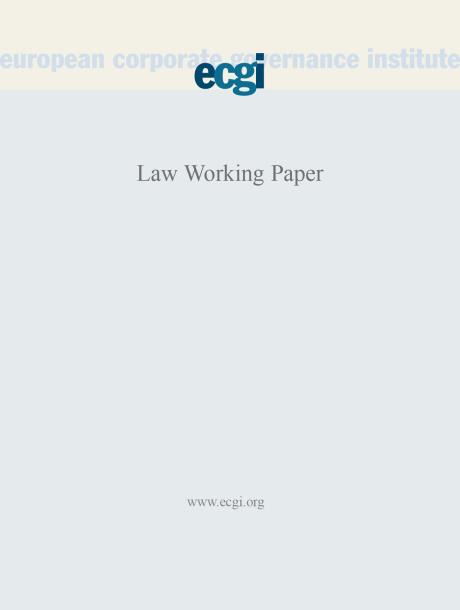
Monetary Liability for Breach of the Duty of Care?
Abstract
This paper clarifies why optimal corporate governance generally excludes monetary liability for breach of directors? and managers? fiduciary duty of care. In principle, payments predicated on judicial evaluations of directors? and managers? business decisions could usefully supplement payments predicated on stock prices or accounting figures in the provision of performance incentives. In particular, the optimally adjusted combination of standard performance pay and tailored partial liability could impose less risk on directors and managers, and provide better risk-taking incentives, than standard performance pay alone. This paper shows this in a formal model summarizing well-known results. Consequently, the reason not to use liability incentives is not absolute but a cost-benefit trade-off. Litigation is expensive, while the benefits from refining incentives are limited, at least in public firms. Equity pay already provides fairly good incentives, courts have difficulties evaluating business decisions, and the agency conflict in standard business decisions is limited. The analysis rationalizes many existing exceptions from non-liability but also leads to novel recommendations, particularly for entities other than public corporations.











